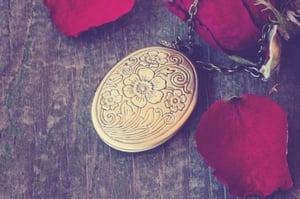 The home where you raised your children. Your grandmother's locket. The lake house. Hand-crafted furniture that has been in the family for generations. These are emotional assets – things you own that have both monetary and emotional value.
The home where you raised your children. Your grandmother's locket. The lake house. Hand-crafted furniture that has been in the family for generations. These are emotional assets – things you own that have both monetary and emotional value.
They are also among the most difficult with which to deal when you are carefully crafting your legacy.
Emotional assets are often worth more than money to their owners, which can make them incredibly problematic when it comes time to write your will or trust.
The issue with emotional assets is that children might not appreciate them nearly as much as you. This fact can be troublesome to people who are thinking about their legacies.
The fear is that emotional assets will be forgotten, neglected or simply sold to the highest bidder, tossed aside as easily as an old love letter or sold as quickly as a refurbished classic car.
And they very well might be (and often are) – unless you turn your emotional assets into opportunities to bring your family together.
Heritage design is the perfect tool to do just that.
Heritage Design
When it comes to managing wealth, most advisers will tell you not to let emotions influence your decisions.
And while that's good advice when it comes to investing, it's not always practical when it comes to planning your legacy.
Some things have so much emotional value that you simply can't put a price on them. Even if you could, something in your heart wouldn't allow you to make decisions about them solely on their worth.
The same can't be said for your heirs.
Many who receive inheritances simply want to liquidate by cashing out as quickly as possible.
Heritage design is one way to help ensure this doesn't happen. Unlike traditional estate planning, heritage planning incorporates family values, traditions, and communication into the process to ensure that families are able to appreciate and protect both emotional and financial inheritances.
History and storytelling are incredibly important parts of the process.
History, Storytelling and Your Emotional Assets
90 percent.
That's how many families see their wealth squandered by the time it is passed down to the third generation.
The problem is that families do not spend enough time sharing stories about what the previous generation did to accumulate the wealth – talking about the family values, roles family members play, dreams, aspirations and financial and emotional assets.
Heritage planning forces families to talk about these things.
It's a process that allows you to:
- Talk about emotional assets and the important role they played in holding the family together and helping it achieve financial security.
- Communicate openly and honestly about what matters, what doesn't and what you would like to see the family do with emotional assets after you are gone.
- Instill a sense of pride in your children and teach them both how and why it is important to protect, nurture and grow assets – both financial and emotional.
- Understand who in your family shares your ties with emotional assets.
But perhaps most importantly, heritage planning allows you to find peace of mind.
You cannot be absolutely sure that your emotional assets will survive the test of time and be cherished forever by your family. But you can do everything possible to help your family understand how much they mean to you – and the important role they played in securing your family's financial future.
If you are struggling with what to do with your emotional assets, consider heritage planning. Then talk with The McGriff Alliance about the process as well as the true value of the things to which you cannot truly assign a monetary value.






Leave a comment